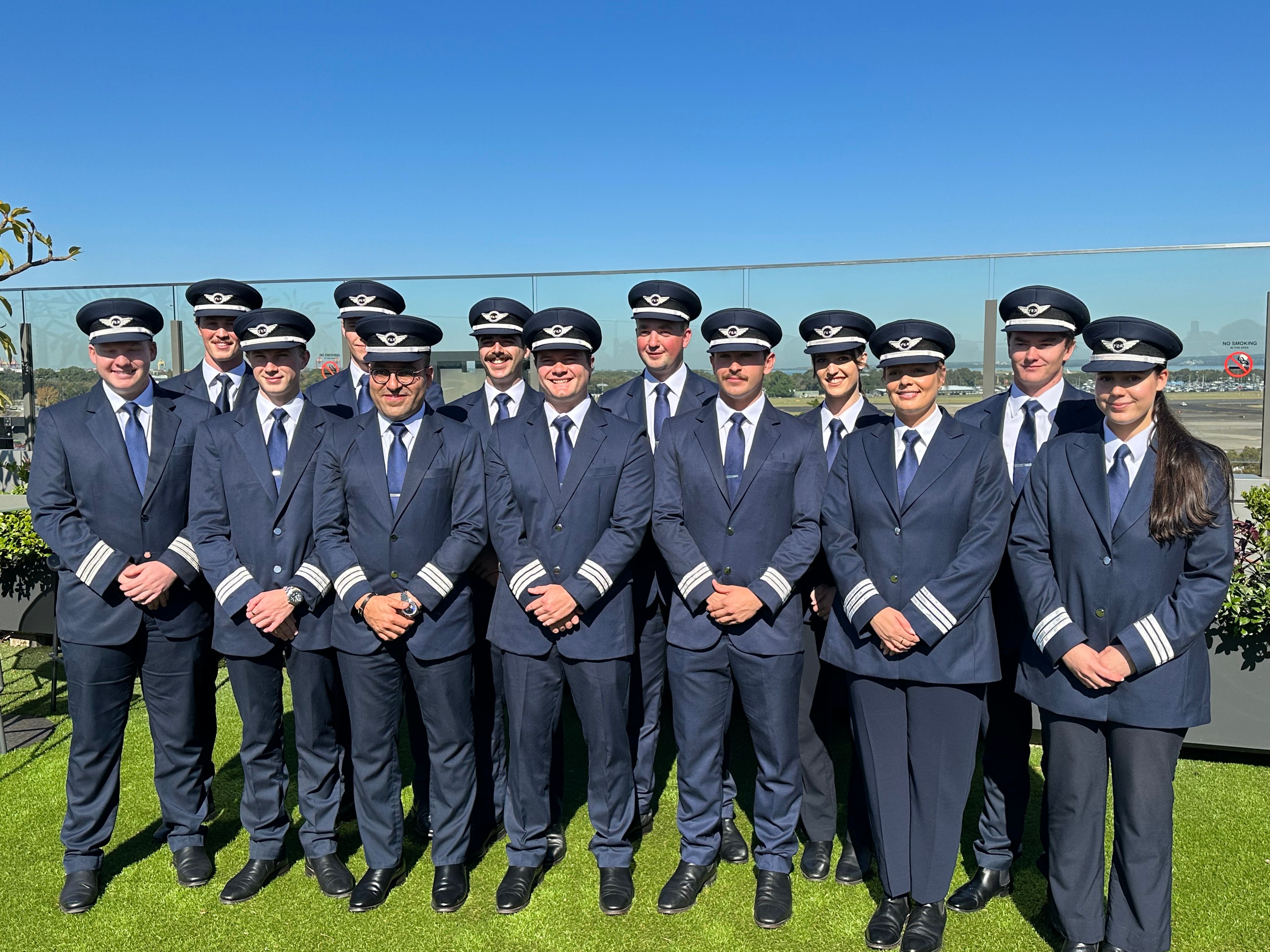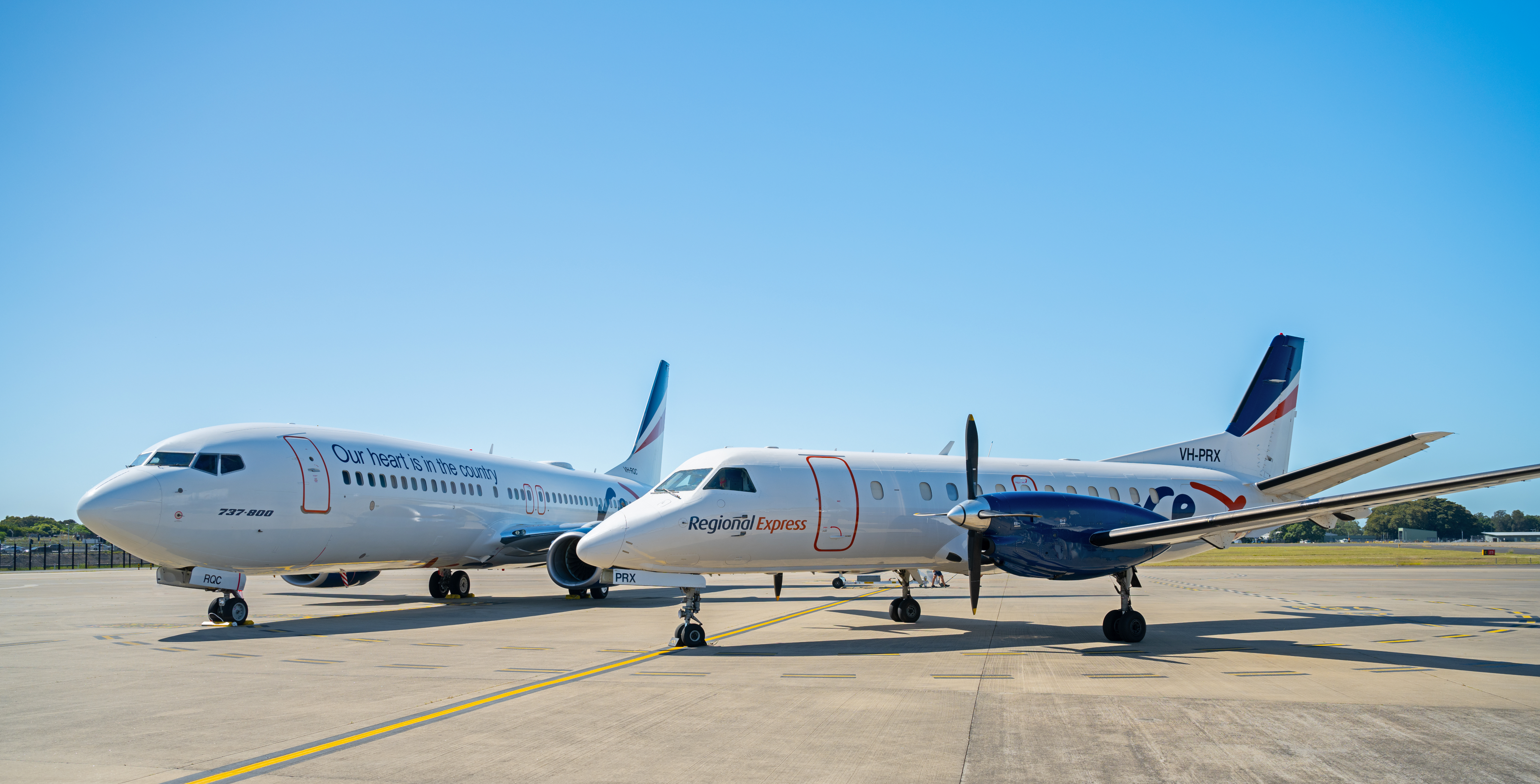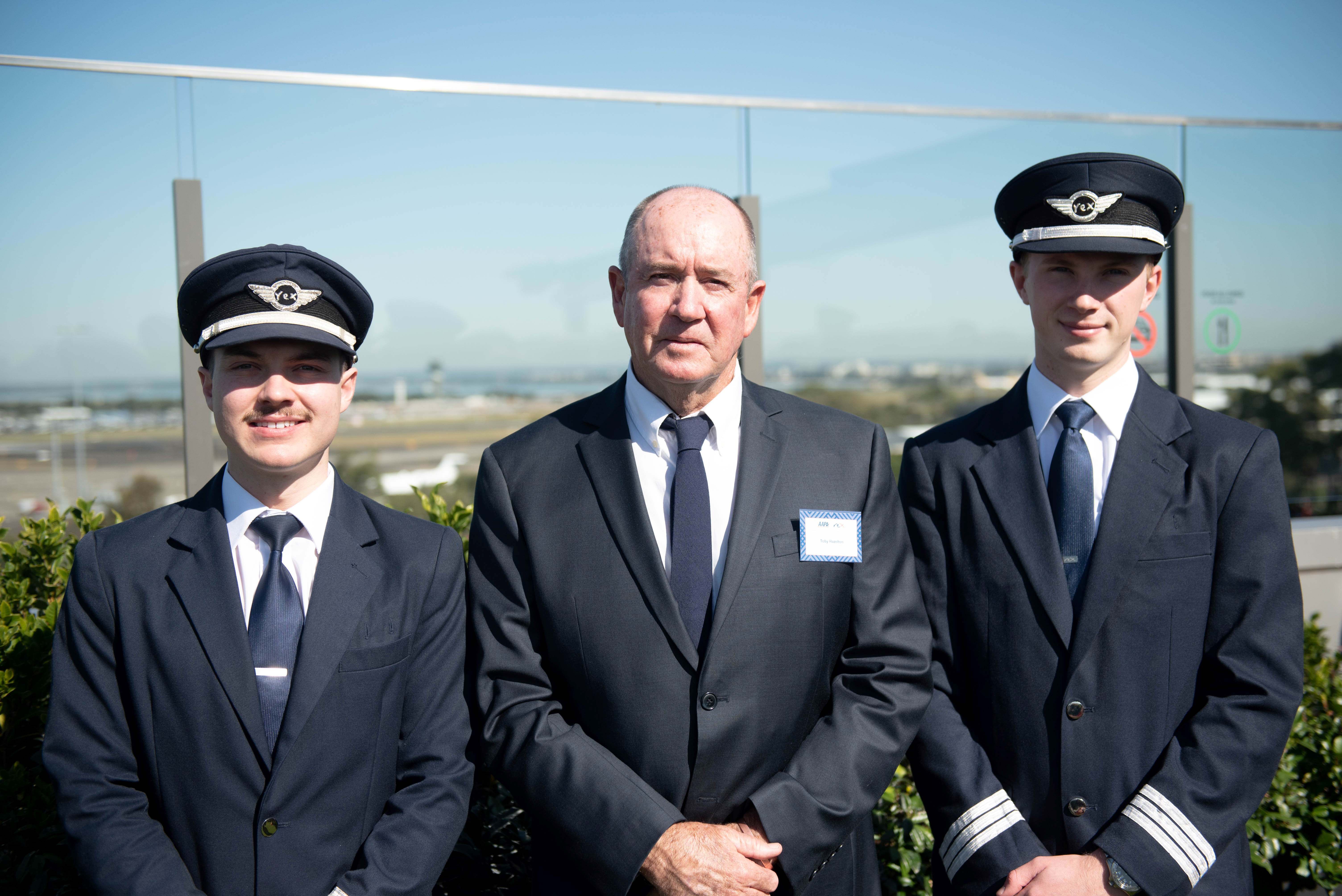With global aviation racing back to a full recovery, shortages of aircraft, engineers and pilots are hindering the return to 100% pre-COVID capacity.
Like most parts of the world, Australia is feeling the pinch of a pilot shortage, but one airline is doing something about it. As well as running an extensive domestic and regional airline network, Rex Airlines (Rex) is the owner of the Australian Airline Pilot Academy, based in its hometown of Wagga Wagga, New South Wales.
A practical solution for pilot shortages
Yesterday, with Sydney Airport as a backdrop and Simple Flying watching on, the airline graduated its latest batch of cadets who successfully passed through the pilot academy. Most of the sixteen graduates will join Rex as First Officers fully qualified to fly the airline’s fleet of 61 Saab 340 turboprops.
Photo: Michael Doran I Simple Flying
Three of the graduating group completed their training in April 2020, but with graduation ceremonies on hold during COVID, their achievement was formally recognized along with the recent graduates yesterday. These three are already operating as first officers on the Saab 340 services. Australian Airline Pilot Academy (AAPA) Executive Chairman Chris Hine spoke yesterday about the tremendous work the group had put in to earn their wings and welcomed the group into the Rex family. He said:
“I warmly congratulate all of those graduating today. It shows that if you are driven by passion, commitment, determination and hard work you can follow your dream and become aviators.
“The future for all of you has never been brighter – the skills you now possess are in high demand, and I am delighted to officially welcome you into the Rex family. I know you will do us proud.”
Photo: Rex Airlines/Rex
Hine certainly got it right when he said these newly minted airline pilots have skills that are in high demand, which is the reason the academy was set up more than 15 years ago. Rex launched its Pilot Cadet Program in December 2007 when demand for quality pilots outstripped supply, leading to the country’s larger airlines poaching talent from the regional carrier.
Rex is looking after itself and adding to the pool
To overcome that and take responsibility for its pilot needs, Rex launched the academy, a wholly-owned subsidiary that now operates from locations in New South Wales and Victoria. Training its own pilots also means Rex can set the standards and produce crews who understand the Rex ethos and take onboard its strong culture.
With demand for pilots again outstripping supply, Rex has recently seen experienced pilots poached by other carriers. This reinforces why the academy is such an important part of Rex’s operations and growth and is also a testament to the airline’s commitment to Australian aviation. Taking in cadets with zero flying experience and graduating them as airline pilots a little over a year later is building the nation’s pool of talented aviators.
Rex is the only Australian airline to have invested in such a program to overcome the pilot shortages that continue to impact the industry. It is another example of how Rex quietly does what needs to be done, keeping in mind the visions of founding-father Max Hazelton, who recently passed away aged 94, and his pioneering role in Australian regional aviation. His son, Toby Hazelton, presented the Max Hazelton Award to the most outstanding cadet from each intake, Luke Kelly and Luke Morris.
Photo: Rex
Cadets who successfully graduate from AAPA hold a Commercial Pilots Licence with a Multi-Engine Instrument Rating, a Diploma in Aviation (Commercial Pilots Licence) and a Diploma in Aviation (Instrument Rating). This group is now gaining their Saab 340-type ratings, which is good news for those regional customers who have recently seen some services curtailed due to pilot and engineering staff shortages and supply chain issues.
It is more than a little ironic that one of Australia’s smaller airlines, which until two years ago operated regional services only, has such a long and unbroken pedigree of training pilots. Perhaps if its bigger rivals had taken similar steps, there would be more than enough homegrown talent to go around, rather than this pilot poaching that goes on when supply gets tight.
What do you think of the Rex cadet program? Let us know in the comments.



